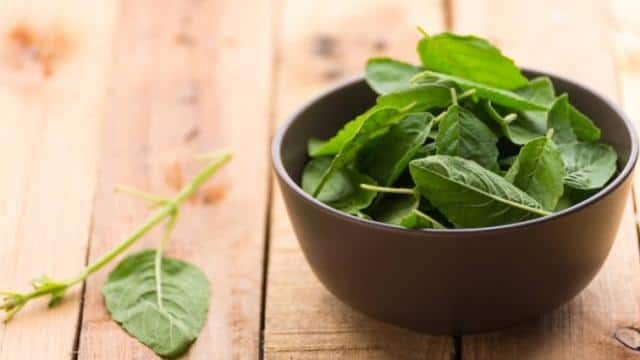

Consuming certain foods can have a significant effect on a person’s risk of developing diabetes, which is a disorder that is exceedingly prevalent. If diabetes is not treated, the high amounts of blood sugar that it causes can cause damage to a person’s nerves, eyes, kidneys, and other organs. Diabetes mellitus can be broken down into three primary subtypes: type 1, type 2, and gestational diabetes. Keeping your blood sugar level under control can be accomplished in a number of ways, including eating well, taking any medicine that your doctor has prescribed for you, and maintaining healthy body weight. In her most recent Instagram Stories, the nutritionist adds one more piece of advice to the collection by stating that the consumption of a particular herb can help keep blood sugar levels under control. She goes so far as to call it a “blessing for diabetes.”
Tulsi is not a rare herb, nor is it any other type of plant; rather, it is an ananas herb that is grown in the majority of Indian households. The nutritionist says that the leaves of Tulsi have anti-oxidant properties and essential oils that make things like eugenol, methyl eugenol, and caryophyllene. The nutritionist says that these substances not only help the body make more insulin but also make the body more sensitive to the hormone’s effects. The nutritionist says that these substances not only help the body make more insulin but also make the body more sensitive to the hormone’s effects. The nutritionist says that these substances not only help the body make more insulin but also make the body more sensitive to the hormone’s effects.
In the fight against sickness, diet is a very important factor. In a different piece, the nutritionist provides a list of ten foods that those who have diabetes should consume in order to keep their blood sugar levels under control. Are you curious about what they are?

This is what Nutritionist suggests:
1. Whole Grain
2. Chia seeds
3. Fruits
4. Vegetables
5. Garlic
6. Coriander seeds
7. Paneer ka phool
8. Buckwheat (Kuttu) tea
9. Bitter gourd petha juice
10. Apple cider vinegar
- Consuming whole grains like oats, barley, and quinoa can assist in preserving healthy levels of blood sugar in the body.
- Chia seeds have a high fibre content but a low amount of carbohydrates that can be digested. Chia seeds can actually help lower blood sugar levels because they slow the rate at which food travels through the digestive tract and is absorbed by the body.
- Consuming a greater quantity of some fruits, in particular strawberries, grapes, and apples, has been linked to a dramatically reduced risk of developing type 2 diabetes.
- Vegetables are a good diet to help you manage your blood sugar because they are an excellent source of fibre and contain a low number of calories. Gourds, eggplants, pumpkins, tomatoes, green beans, carrots, colourful peppers, and various types of greens such as spinach, broccoli, and cauliflower are all examples of nutritious selections.
- Garlic: Studies have shown that eating garlic can help people with diabetes control their blood sugar, inflammation, LDL cholesterol, and blood pressure.
- Seeds of coriander seeds actually help in regulating glucose levels in the blood by activating enzymes that are responsible for eliminating sugar from the blood. This is how coriander seeds help regulate glucose levels.
- Paneer ke phool ka pani It not only reduces spiked-up glucose levels, but it also controls the renal problems that are associated with it. Paneer ka phool.
- Studies have shown that the soluble fibre included in buckwheat can help reduce the rise in blood sugar that occurs after meals, which can be an effective management tool for those who have diabetes.
- Bitter gourd petha juice contains powerful antioxidants such as lycopene and beta-carotene, all of which contribute to a reduction in elevated blood sugar levels.
- The fermented acetic acid in apple cider vinegar helps to increase insulin sensitivity, reduce fasting blood sugar levels, and cut blood sugar response by as much as 20%.

Leave a Reply